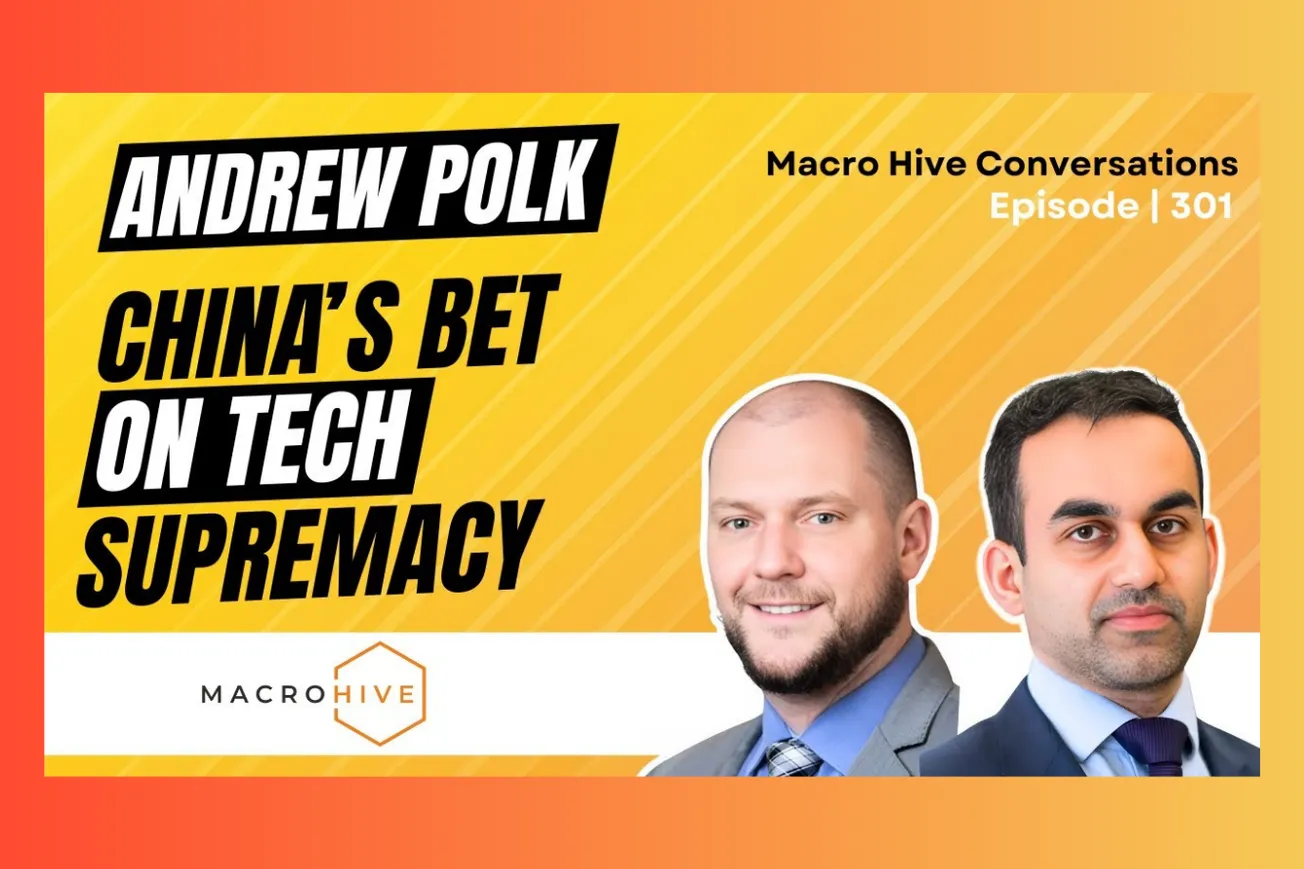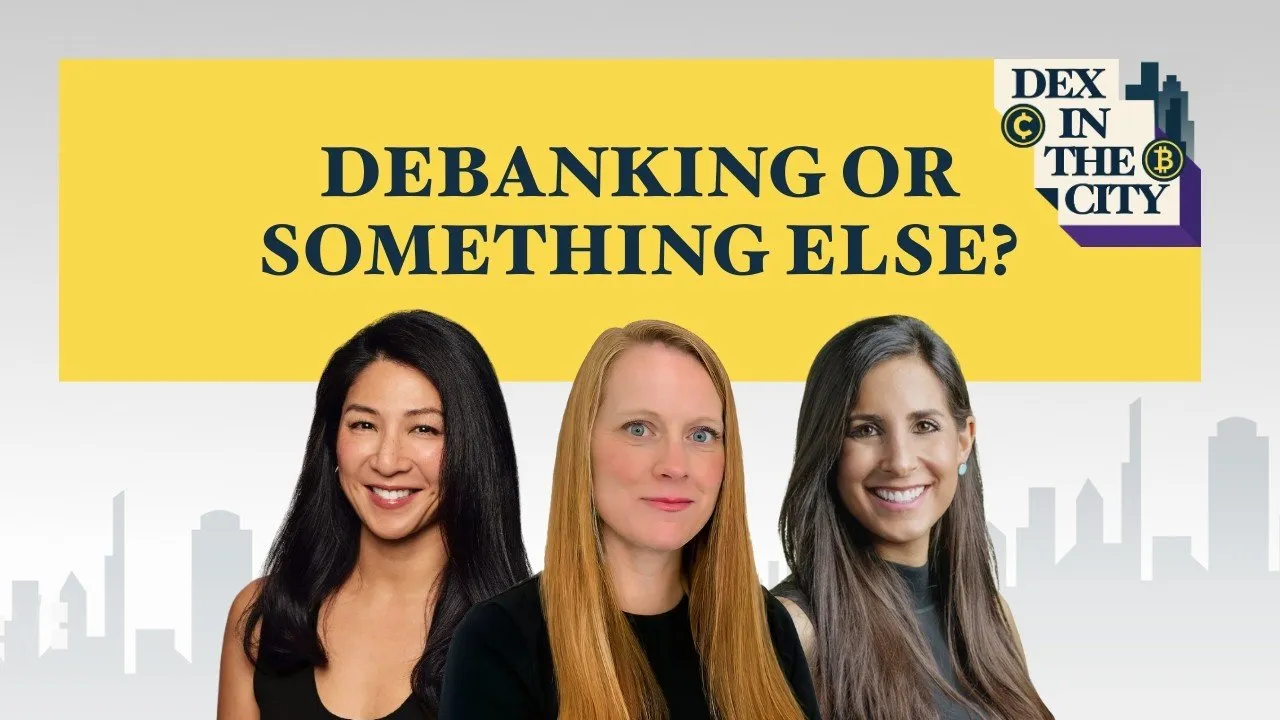Table of Contents
China is undergoing its most significant economic transformation in decades, pivoting from property-driven growth to technology leadership as President Xi Jinping bets the nation's future on innovation over speed.
Key Takeaways
- Xi Jinping's core philosophy: "The strongest economies are not the ones that grow the fastest, they're the ones with the best technology"
- China is experiencing a historic transition from property-led growth to "new productive forces" like EVs, solar, and AI
- The worst of the property crisis appears behind China, but stabilization will take years, especially in third-tier cities
- China's tech sector receives a "B" grade - world-leading in EVs and green tech, competitive but uncertain in AI
- DeepSeek's breakthrough marked a pivot moment where Xi recognized private sector necessity for AI development
- China sees Trump 2.0 as continuity rather than change, having prepared extensively for increased tariffs
- The Global South represents China's primary growth strategy as Western markets become increasingly closed
- Supply chain diversification continues, but China pushes back with export restrictions on critical technologies
- Young Taiwanese increasingly view reunification as inevitable, showing concerning complacency about resistance
- China has limited influence over Putin's Ukraine strategy despite their strategic partnership
From Texas Panhandle to Beijing: The Making of a China Economist
Andrew Polk's journey from Amarillo, Texas - a city he describes as a place "people will say they've driven through but no one ever stops there" - to becoming a leading China analyst illustrates how unpredictable career paths can lead to expertise in the world's most important bilateral relationship.
After studying American studies at Texas A&M, a teaching stint in Hong Kong caught him with what he calls "the China bug." This led to graduate studies in international relations, where his first class in international monetary theory convinced him "this is where it's at." The result? A decade living in Beijing and now running Trivium China, a leading research firm focused on Chinese economics and policy.
"I described myself as a China economist and they were like oh I didn't know a China economist was a thing," Polk recalls of a conversation with an actual economist. But China economics represents a unique field because the country "doesn't defy the laws of economics so to speak but it certainly has a unique development model."
The Xi Jinping Doctrine: Technology Over Speed
What drives Xi Jinping economically? According to Polk, who's spent years analyzing Chinese leadership, there's one phrase that captures Xi's fundamental philosophy: "The strongest economies are not the ones that grow the fastest, they're the ones with the best technology."
This represents a radical departure from China's historical growth obsession. Xi genuinely appears to be a Marxist believer, not just someone using ideology for political control. But more importantly, he sees technological supremacy as essential for China becoming the superpower he envisions.
"If we can't innovate, we can't own cutting-edge technologies, whether that be in green techs, solar, AI, then we're not going to be the superpower I want us to be," Polk explains. This philosophy explains the massive energy focused on science and technology across all levels of Chinese government.
The Great Economic Transition
China is currently undergoing what Polk describes as a "momentous transition" - moving away from property as the primary growth driver toward what Chinese officials call "new productive forces." These include electric vehicles, solar panels, AI, and other advanced technologies.
The challenge? None of these new industries, even combined, are big enough yet to fill the macroeconomic hole left by the property sector's contraction. "It's going to be a few more years before they can make up that hole and we're settling into sort of the new normal," Polk notes.
This transition period creates the over-capacity and export dependence that's generating global tensions. Steel and aluminum that would have gone into property development are now being dumped overseas, while new EV production far exceeds domestic demand.
But there's also a structural component. China's system, where provinces compete with each other and respond to central government signals by all investing in the same priorities, naturally tends toward over-production. "By definition of that competition you end up getting over-capacity," Polk observes.
Property Sector: Stabilizing but Not Recovered
The good news on China's property crisis is that "the worst is behind us." Numbers for investment, construction, and prices are still negative but "slightly less negative than they were last year." Even achieving net zero growth from the property sector would represent significant improvement.
However, stabilization is uneven. First and second-tier cities are seeing improvement, but third-tier cities face the biggest property overhangs and weakest economies. Local state-owned enterprises are buying up excess housing units to convert into affordable housing, but "that's going to be an ongoing issue for years" to work through the inventory.
This geographic divergence means China is experiencing increasing "bifurcation by city tier" - a tale of two countries where major cities recover while smaller cities struggle with massive oversupply.
Two Sessions: Boring is the New Exciting
China's annual Two Sessions meetings - where economic plans are laid out - were "refreshingly boring" this year, according to Polk. GDP growth targets stayed the same, policy priorities remained consistent, and there were no major surprises.
"In a way it was refreshingly boring right - there's so much volatility in the world... but in China not that much has changed," Polk explains. While fiscal spending increased 9% and the budget deficit target hit 4% of GDP (the highest in decades), this merely met expectations rather than exceeding them.
For China watchers, meeting expectations often feels disappointing because investors constantly hope for more aggressive stimulus. "If you meet expectations you actually come in under expectations in a weird way," Polk notes.
Private Sector Renaissance: The DeepSeek Moment
The relationship between Xi Jinping and China's private tech sector has been complex and often hostile over the past 13 years. The 2020-2021 tech crackdown represented Xi's effort to establish that companies "prosper at the will of the state."
But DeepSeek's AI breakthrough appears to have marked a pivot moment. Combined with Xi's recent meeting with private sector tech entrepreneurs, this signals recognition that "there is a space where we need private sector companies" that can't be achieved through state-led R&D alone.
"I do think we're going to look back sort of six months from now and see not only the DeepSeek announcement but the meeting that Xi had with private sector tech entrepreneurs a few weeks ago as a real pivot moment," Polk predicts.
The change is palpable on the ground. Polk's colleagues in China describe "genuine level of grassroots excitement" with a feeling that "China's in the game - the technology game, the AI game - and we can compete with these Western companies."
China's Tech Report Card: A Solid B
How successful is China's tech sector currently? Polk gives it a "B" grade - doing some things really well, some things badly, and others in the middle.
Green Technology: A+ China is "arguably leading the world in the NEV space and Green Tech more broadly." Recent announcements from BYD about five-minute charging for 400 kilometers of range exemplify this leadership. China sees these developments as a template to replicate across other hardware technologies.
AI: Incomplete DeepSeek made "some real moves" and other companies like Monica with its Manus product are generating excitement. But whether China can continue competing against big US tech companies "remains a huge question," particularly given potential bottlenecks from export controls.
The Reality Check "With China the reality is they're sort of muddling through getting some wins and some losses along the way," Polk observes. The West constantly vacillates between viewing China as an "indomitable force" or as "collapsing under the weight of its own contradictions."
Supply Chain Wars: Diversification with Chinese Characteristics
Despite all the talk of deglobalization, China's exports continue growing year after year. How does this square with corporate reshoring efforts?
Many Western companies are building redundancy into supply chains, "actively reducing their footprint in China" while setting up operations in Southeast Asia and India. But this represents "de-risking" rather than complete decoupling.
China isn't passive in this process. The government is implementing restrictions on certain NEV and solar technologies, requiring manufacturing processes to remain in China. "The government's trying to push back to some extent especially on critical technology," Polk explains.
Meanwhile, Chinese companies are playing a "cat and mouse game" - setting up operations in Southeast Asia, Mexico, and Gulf countries to stay ahead of tariffs and import restrictions.
China's goal is to avoid the "hollowing out of the Chinese manufacturing sector" that happened to the US. They prefer the "German model on steroids" - high-end manufacturing with lasting global supply chain dominance.
Trump 2.0: Prepared for Round Two
Chinese views of Trump's return reflect sophistication gained from experience. They see "very much continuity" between Trump 1.0, Biden, and Trump 2.0, recognizing a bipartisan Washington consensus on containing China.
"They think and I think rightfully so that there is a pretty widespread consensus in Washington DC that the US needs to be sort of trying to trip up China," Polk explains.
China was far better prepared for Trump 2.0, immediately responding to initial tariffs with a "multi-pronged package" using legal tools developed specifically for this purpose over the past five years. The 20% tariffs were "about what they thought it would be."
The Big Question: What Does Trump Want? China's major uncertainty centers on Trump's actual demands. "They do not understand what is the ask out of the White House," Polk notes. Is it lower trade surpluses? More agricultural purchases? Help on fentanyl? Assistance with Ukraine?
"It's not clear to me what Trump wants from Xi Jinping and wants from China," Polk admits, agreeing with the Chinese perspective that Trump's asks remain unclear.
Global South Strategy: China's Growth Bet
With Western markets increasingly closed, China is "all in" on the Global South. While individually small, these markets "aggregate up" to equal a Europe or US in size.
Xi Jinping spends most of his diplomatic time with Global South leaders rather than Western counterparts. Chinese vehicle sales are increasingly going to Brazil, South America, and Africa as the strategy plays out practically.
But this has limits. China "cannot maintain the amount of reliance on exports that they currently have" and will need to develop domestic demand over coming years. "The numbers don't add up if they want to continue a certain level of economic growth."
Taiwan: The Complacency Problem
China's Taiwan strategy remains focused on "peaceful reunification" through Gray Zone tactics - information warfare and economic coercion designed to convince Taiwanese that integration is inevitable.
Concerning developments suggest this strategy may be working. A contact recently visiting Taiwan reported that young Taiwanese "don't see themselves as Mainland Chinese people" but increasingly "see it as an inevitability" that reunification will happen in their lifetimes.
"There's a little bit of complacency among younger Taiwanese," Polk notes. Taipei doesn't feel like "a city under siege" with people going about normal lives, and military volunteer recruitment remains difficult.
The Russia Factor: Limited Influence
Despite their strategic partnership, China has limited influence over Putin's Ukraine decisions. Xi Jinping was "caught off guard with the invasion" despite Putin visiting Beijing just days before it began.
China sees Russia as a strategic ally in a multipolar world governed by realpolitik rather than values-based alliances. "That relationship is pretty ironclad at the moment," but it's more about alignment than Chinese control over Russian actions.
Lessons for the Next Generation
Polk's advice for young people reflects his own journey: "Find something you love and do it." His career as a China economist works because "it doesn't feel like work" when discussing something genuinely fascinating.
More practically, he learned that success comes from being "the most informed most knowledgeable person in the room" rather than the smartest. "You'd be shocked that 95%, 98% of people don't" actually read the Chinese policy documents, meeting readouts, and primary sources.
"You don't have to be the smartest person in the room you just have to be the most informed... just put in the hard yards and that pays off a lot more than just trying to be the smartest person at any given gathering."
The Entrepreneurial Lesson
Running Trivium China taught Polk entrepreneurship lessons beyond China analysis. He recommends "The E-Myth" for anyone in business, describing it as repeatedly "getting punched in the gut" as the book highlighted every mistake their growing company had made.
"All of a sudden you realize oh wow we're not just working for ourselves we have 25 employees we have to develop an HR policy all this stuff," he recalls of the classic entrepreneurial journey from wanting independence to managing significant responsibility.
Looking Ahead: The Technology Race
China's bet on technological supremacy over growth speed represents a fundamental shift with global implications. Success in EVs and green technology provides a template Beijing hopes to replicate across other sectors, while AI development requires uncomfortable accommodation with private sector innovation.
The transition from property-led growth to technology-driven development will take years to complete, creating ongoing tensions with global trade partners managing Chinese over-capacity. Meanwhile, geopolitical competition with the US appears structurally embedded regardless of which party controls Washington.
Whether China can execute this technological transformation while managing property sector overhang, trade tensions, and domestic consumption challenges will largely determine global economic dynamics for the next decade. Xi Jinping's bet that innovation trumps speed may ultimately define whether China achieves his superpower ambitions or falls short of its technological aspirations.





